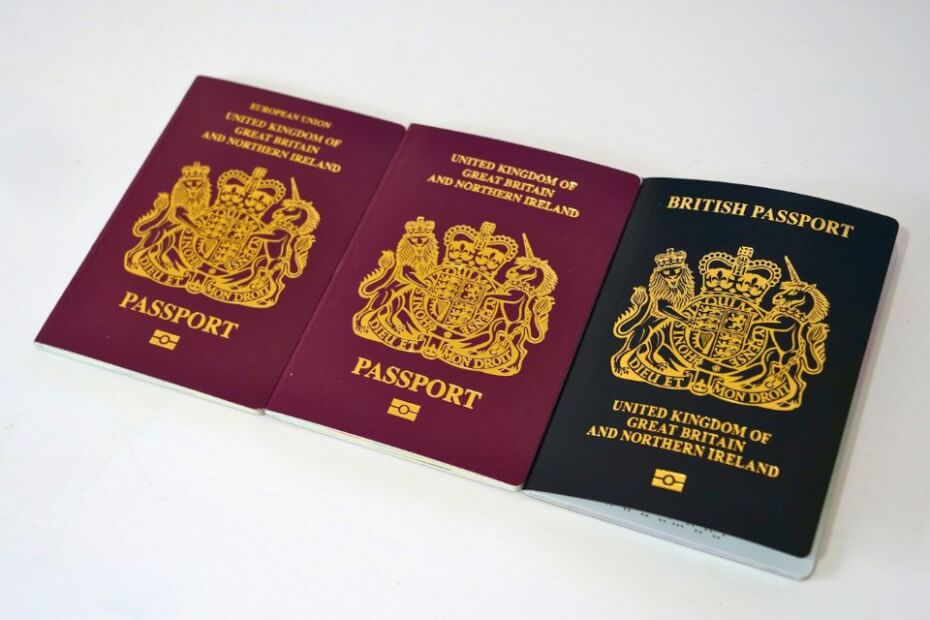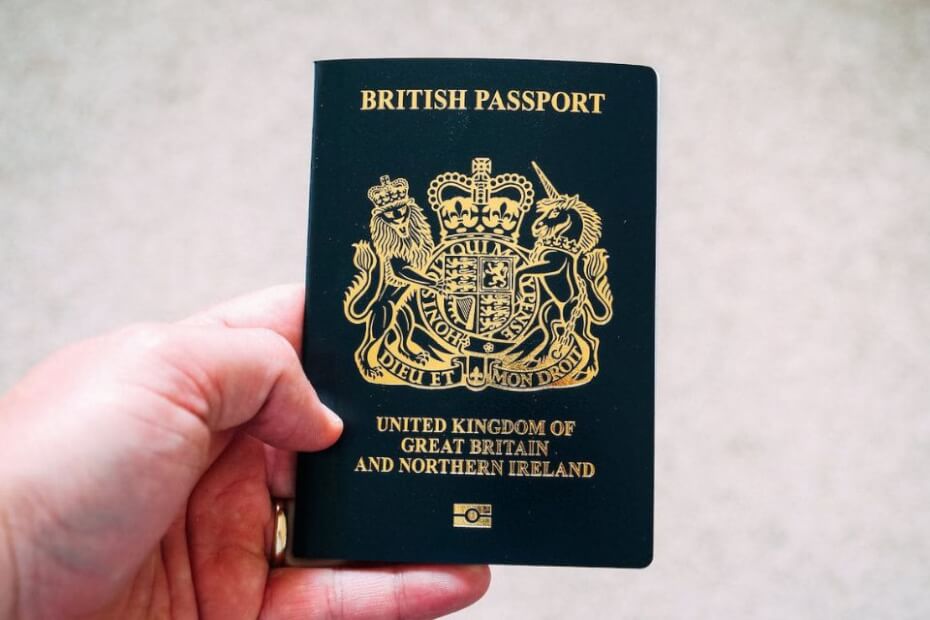
British citizens still holding the old red passports have been warned ahead of the anticipated busy summer travel season.
The Daily Express dispatched an urgent notice for many British people with red passports that may expire soon.
Since the United Kingdom (UK) departed from the European Union (EU), new blue British passports have replaced the red ones.
Red passports are no longer being issued, and while they are still good to use, they will soon be outdated or expired.
To complicate matters further, some UK passports may be valid for over ten years, the typical validity of a passport for an adult.
This happens when travelers renew their passports with months remaining before the validity expires.
The remaining months of validity from the nearly-expired passport are added to the new passport, extending its validity beyond ten years.
Passport validity vs. passport expiration date
Not all passports remain valid for travel until their expiration date. Many countries require passports to remain valid for a specific time before a traveler can visit.
This passport validity requirement prevents visitors from overstaying in their destination or host country. It ensures that visitors’ passports remain valid by the time they leave.
Visitors with expired passports overstay in the host country while waiting for emergency replacement documents for their return home.
This rule is crucial for British citizens who still use red passports that may be near their expiration date.
Red UK passports might not be valid for travel depending on the travelers’ destination country.
For this reason, British citizens are strongly advised to check their passport validity and how their holiday destination can affect it.
Six-month passport validity rule
Many countries apply the six-month passport validity rule.
The regulation states that a passport should remain valid for at least six months beyond the departure date for international travel.
In some countries, like Canada, the six-month passport validity rule only applies to travelers from certain countries of origin.
According to Visa Guide World, the following nations use the six-month passport validity rule:
- Afghanistan
- Algeria
- Anguilla
- Bahrain
- Bhutan
- Botswana
- British Virgin Islands
- Brunei
- Canada (depending on the traveler’s country of origin)
- Cambodia
- Cameroon
- Cayman Islands
- Central African Republic
- Chad
- Comoros
- Côte D’Ivoire
- Curacao
- Ecuador
- Egypt
- El Salvador
- Equatorial Guinea
- Fiji
- Gabon
- Guinea Bissau
- Guyana
- Indonesia
- Iran
- Iraq
- Israel
- Jordan
- Kenya
- Kiribati
- Laos
- Madagascar
- Malaysia
- Marshall Islands
- Micronesia
- Myanmar
- Namibia
- Nicaragua
- Nigeria
- Oman
- Palau
- Papua New Guinea
- Philippines
- Qatar
- Rwanda
- Saint Lucia
- Samoa
- Saudi Arabia
- Singapore
- Solomon Islands
- Somalia
- Somaliland
- Sri Lanka
- Sudan
- Suriname
- Taiwan
- Tanzania
- Thailand
- Timor-Leste
- Tokelau
- Tonga
- Tuvalu
- Uganda
- United Arab Emirates
- Vanuatu
- Venezuela
- Vietnam
- Yemen
- Zimbabwe
Other countries’ passport validity policies
Not all countries follow the six-month passport validity requirement.
Others require visitors’ passports to be valid for at least three months upon arrival in the country.
The countries that follow a three-month validity rule include:
- Albania
- Azerbaijan
- Belarus
- Bosnia and Herzegovina
- Georgia
- Honduras
- Jordan
- Kuwait
- Lebanon
- Moldova
- Monaco
- Montenegro
- Nauru
- North Macedonia
- Panama
- Senegal
Eritrea, Hong Kong, Lebanon, Macau, South Africa, Maldives, and Zambia require travelers’ passports to be valid for three months from the arrival date.
Micronesia and Zambia require travelers to have at least four months validity on their passports upon arrival.
On the other hand, Bermuda only requires 45-day passport validity for its visitors.
Still, some nations have more lenient regulations and only require travelers’ passports to be valid during their entire stay.

Schengen Area requires three-month validity upon exit
All countries in the EU’s Schengen Area require travelers’ passports to be valid for at least three months after leaving.
This means that on the travelers’ departure date, their passport must still be at least three months from its expiry date.
The Schengen Area comprises 27 European Union (EU) member states and country neighbors Switzerland, Norway, Iceland, and Liechtenstein, which have abolished internal border controls.
Post-Brexit, UK citizens need to satisfy two conditions before being allowed entry into the EU’s Schengen Area.
First, British travelers must have passports that are not over ten years old when they leave the EU bloc.
It’s also important to note that countries in the Schengen Area use a passport’s date of issue as the “starting’ point.” This is crucial for travelers whose passports are valid beyond ten years.
And second, UK nationals must have three months of passport validity upon exiting the Schengen Area.
However, the UK government recommends that UK travelers’ passports be valid for at least six months before their passport expires.
This is important for a 90-day visa-free visit; the maximum allowed stay in the Schengen Area and most EU nations is within 180 days.
Having six months left ensures British citizens can travel for the entire 90-day period and leave Europe with a valid passport.
Other passport checks to do before traveling
According to The Telegraph, UK travelers must also assess their passports for two more things before booking their summer travel.
Aside from passport validity, UK citizens need to assess the condition of their passports and unofficial stamps.
The UK Passport Office advises UK citizens to have their passports replaced if “it has more than reasonable wear and tear.”
Damaged passports, including those with ink spills, missing pages, or discoloration, may prevent travelers from being allowed to travel.
Erroneous notations or novelty stamps in a passport may cause entry and exit issues, cause the passport to run out of pages, or invalidate it.

